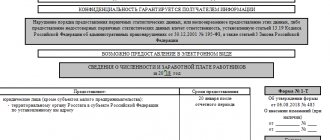1. Enforcement proceedings are terminated by the court in the following cases:
1) the death of the claimant-citizen (debtor-citizen), declaring him dead or recognizing him as missing, if the requirements or obligations established by a judicial act, an act of another body or official cannot pass to the legal successor and cannot be implemented by a trustee appointed by the guardianship authority and guardianship;
2) loss of the ability to execute a writ of execution obliging the debtor to perform certain actions (refrain from performing certain actions);
3) the claimant’s refusal to receive the thing seized from the debtor during the execution of a writ of execution containing a requirement to transfer it to the claimant;
4) in other cases when federal law provides for the termination of enforcement proceedings.
2. Enforcement proceedings are terminated by the bailiff in the following cases:
1) the court adopts an act to terminate the execution of the writ of execution issued by it;
2) the court accepts the claimant’s refusal to collect;
3) approval by the court of a settlement agreement, a reconciliation agreement between the claimant and the debtor;
4) cancellation of the judicial act on the basis of which the executive document was issued;
5) cancellation or invalidation of the executive document on the basis of which enforcement proceedings were initiated;
6) termination, on the grounds and in the manner established by federal law, of the execution of a judicial act, an act of another body or official in a case of an administrative offense by the court, other body or official that issued the executive document;
7) making an entry on the exclusion of a legal entity (collector-organization or debtor-organization) from the unified state register of legal entities;
 if the executive document contains a requirement for the return of a child illegally transferred to the Russian Federation or held in the Russian Federation or for the exercise of access rights in relation to such a child on the basis of an international treaty of the Russian Federation and the child has reached the age after which the specified international treaty is not subject to application in relation to this child;
if the executive document contains a requirement for the return of a child illegally transferred to the Russian Federation or held in the Russian Federation or for the exercise of access rights in relation to such a child on the basis of an international treaty of the Russian Federation and the child has reached the age after which the specified international treaty is not subject to application in relation to this child;
9) termination of alimony obligations on the grounds provided for in paragraph two of paragraph 2 of Article 120 of the Family Code of the Russian Federation;
10) recognition of debts on payments to the budget as uncollectible in the manner established by the legislation of the Russian Federation;
11) if the executive document contains a requirement for the collection of state duties in a case considered by the court on the collection of debts on payments to the budget, in respect of which, in the manner established by the legislation of the Russian Federation, a decision was made to recognize it as hopeless for collection;
12) termination of the obligations of the borrower - an individual to the creditor-mortgagor in accordance with paragraph 5 of Article 61 of the Federal Law of July 16, 1998 N 102-FZ On Mortgage (Pledge of Real Estate)" (hereinafter referred to as the Federal Law "On Mortgage (Pledge of Real Estate)" ).
3. If the judicial act that became the basis for termination of enforcement proceedings is canceled, or the circumstances that served as the basis for termination of enforcement proceedings change, it is resumed at the request of the claimant or at the initiative of the bailiff.
Termination of enforcement proceedings
The second form of completion of enforcement proceedings is its termination. The law establishes the grounds for termination of enforcement proceedings and its legal consequences. The grounds for termination of the said proceedings are such that the writ of execution cannot be executed either now or later.
Termination of enforcement proceedings can be carried out by the court and the bailiff.
Part 1 art. 43 of the Federal Law “On Enforcement Proceedings” provides grounds for termination of enforcement proceedings by the court in the following cases:
- 1) death of the claimant-citizen (debtor-citizen), declaring him dead or recognizing him as missing, if the requirements or obligations established by a judicial act, an act of another body or official cannot pass to the legal successor and cannot be implemented by a trustee appointed by the guardianship authority and guardianship. This ground for termination is interconnected with a similar ground for suspension of enforcement proceedings in the event of the possibility of succession (Part 1, Part 1, Article 40 of the Federal Law “On Enforcement Proceedings”). To terminate enforcement proceedings on the basis under consideration, the presence of a set of facts is required: 1) the death of the claimant-citizen (debtor-citizen), declaring him dead or recognizing him as missing. The death of a citizen is confirmed by a copy of the death certificate. The other two legal conditions (declaring a citizen dead or recognizing him as missing) must be confirmed by a court decision that has entered into legal force; 2) requirements or obligations established by a judicial act, an act of another body or official cannot pass to the legal successor and cannot be implemented by a trustee appointed by the guardianship and trusteeship body. This means that the nature of the legal relationship does not imply the presence of a successor. This type of relationship includes personal non-property relationships. It is possible that before the termination of enforcement proceedings, proceedings on it may be suspended to determine the successor - for example, until the heirs of the deceased are determined. Moreover, due to the absence of heirs, succession cannot be carried out [1];
- 2) loss of the ability to execute a writ of execution obliging the debtor to perform certain actions (refrain from performing certain actions). In this type of cases, there is no possibility of changing the method of execution, therefore the loss of the possibility of execution leads to the termination of enforcement proceedings;
- 3) refusal of the claimant to receive the thing seized from the debtor during the execution of the writ of execution containing the demand
- 0 transfer of the thing to the claimant. This provision should be interpreted in conjunction with Art. 88 of the Law “On Enforcement Proceedings” - when awarding the claimant the property specified in the writ of execution, the bailiff seizes it from the debtor and transfers it to the claimant under the acceptance certificate. If the claimant refuses to receive the thing specified in the executive document, then the bailiff draws up an act about this, returns the specified thing to the debtor and applies to the court with an application to terminate enforcement proceedings in relation to this thing;
- 4) in other cases when federal law provides for the termination of enforcement proceedings.
The court issues a ruling to terminate enforcement proceedings, subject to immediate execution.
Is the entry into the Unified State Register of Legal Entities of an entry on the termination of a legal entity (claimor or debtor) in connection with liquidation a basis for terminating enforcement proceedings?
Exclusion of a debtor organization from the Unified State Register of Legal Entities by decision of the registration authority on the basis of Art. 21.1 of the Federal Law of August 8, 2001 N 129-FZ “On State Registration of Legal Entities and Individual Entrepreneurs” in accordance with Art. 7 hours 2 tbsp. 43 of the Law on Enforcement Proceedings entails the termination of enforcement proceedings.
If a liquidated debtor-organization has unrealized property left, at the expense of which the claims of creditors can be satisfied, then the claimant who has not received execution under the writ of execution, another interested person or an authorized state body has the right to apply to the court with an application to appoint a procedure for distributing the discovered property among the persons having the right to do so, in accordance with and. 5.2 art. 64 FK of the Russian Federation (item 39 of the resolution of the Plenum of the Supreme Court of the Russian Federation of November 17, 2015 No. 50 On the application of legislation by courts when considering certain issues arising during enforcement proceedings).
Enforcement proceedings are terminated by the bailiff in the following cases:
- 1) adoption by the court of an act to terminate the execution of the writ of execution issued by it. For example, this may be the cancellation of a court ruling on securing a claim;
- 2) the court’s acceptance of the claimant’s refusal to collect. Due to the principle of discretion in enforcement proceedings, the claimant has the right to either present a writ of execution for execution or refuse to collect. However, such a refusal must be accepted by the court. Neither the EPC of the Russian Federation nor the Arbitration Procedure Code of the Russian Federation contain special rules governing the refusal of collection. But since the refusal to collect is by its nature a regulatory action, the corresponding norms can be applied - Part 2 of Art. 39 EPK RF, part 5 art. 49 Arbitration Procedure Code of the Russian Federation. By virtue of these norms, the court does not accept a refusal to collect if such refusal violates the law or the rights of other persons;
- 3) approval by the court of a settlement agreement between the claimant and the debtor. A settlement agreement can be concluded at any stage of the civil and arbitration process, including during enforcement proceedings. The conclusion of a settlement agreement relates to the administrative actions of the parties (part 2 of article 39 of the Code of Civil Procedure of the Russian Federation, part 5 of article 49 of the Arbitration Procedure Code of the Russian Federation). The court will not approve a settlement agreement if it violates the law or the rights of others;
- 4) cancellation of the judicial act on the basis of which the executive document was issued;
- 5) cancellation or invalidation of the executive document on the basis of which the proceedings were initiated;
- 6) termination, on the grounds and in the manner established by federal law, of the execution of a judicial act, an act of another body or official in a case of an administrative offense by the court, other body or official that issued the executive document;
- 7) if the executive document contains a requirement for the return of a child illegally transferred to the Russian Federation or held in the Russian Federation or for the exercise of access rights in relation to such a child on the basis of an international treaty of the Russian Federation and the child has reached the age at which the specified international treaty is not subject to application in regarding this child.
In practice, the actions of the bailiff to terminate enforcement proceedings are mediated by the issuance of a judicial act. The bailiff, having examined the circumstances, having established the entry into force of judicial acts confirming the existence of the above circumstances, makes a decision to terminate the enforcement proceedings or to refuse to terminate.
In the decision to terminate enforcement proceedings, the bailiff cancels all enforcement measures assigned to him, including seizure of property, as well as restrictions imposed on the debtor. This consequence is logically related to the essence of termination of enforcement proceedings as the completion of enforcement proceedings without the possibility of its resumption.
Moreover, if in the process of executing the enforcement document, the resolution on the collection from the debtor of the costs of carrying out enforcement actions, enforcement fees and fines imposed by the bailiff is not fully or partially executed, then simultaneously with the issuance of the resolution to terminate the main enforcement proceedings, the bailiff initiates enforcement proceedings on decisions not fully or partially executed on the collection from the debtor of expenses for carrying out enforcement actions, enforcement fees and fines imposed by the bailiff in the process of executing the enforcement document. This provision does not apply to termination of enforcement proceedings on the following grounds:
- 1) cancellation of the judicial act on the basis of which the executive document was issued (Section 4, Part 2, Article 43);
- 2) cancellation or invalidation of the executive document on the basis of which enforcement proceedings were initiated (Section 5, Part 2, Article 43 “On Enforcement Proceedings”).
Legal significance of clause 3, part 1, article 46 229-FZ and other provisions of the law
Article 46, part 1, clause 3 of the Federal Law “On Enforcement Proceedings” allows the bailiff to complete the proceedings and send the sheet to the recoverer based on what could not be found:
- debtor;
- his property;
- his accounts, income, assets, other valuables.
The indication in paragraph 4 of this article indicates that at the moment the bailiff cannot carry out collection due to the debtor’s lack of property and income. The corresponding note is placed in the ID with the wording: “enforcement proceedings were terminated due to the impossibility of collection (229-FZ Article 46 Part 1 Clause 4).”
What does this formulation mean and what does the debtor face?
If the ID indicates Art. 46 part 1 clause 4, for the debtor this means that forced collection will not be carried out in the next six months from the date of the relevant decision of the bailiff.
Indication on paragraph 3.
1 tbsp. 46 FZ-229, as is already clear, says that the bailiff could not find the debtor, and he does not have the right to put him on the wanted list.
Article on the topic: Issuance of a writ of execution under the Code of Civil Procedure of the Russian Federation: content, direction of the writ by the court
This means that within the next 6 months after the return of the writ of execution to the claimant, FSSP employees will not carry out any actions, since the individual entrepreneur cannot be initiated again before the expiration of this period.
At this time, the writ of execution itself does not lose its force, and the claimant has the right to present it constantly in compliance with the agreed deadlines. If the debtor acquires income or property, they may be subject to foreclosure in accordance with the general procedure.
Grounds for termination of enforcement proceedings
Termination of enforcement proceedings is possible by the court and the bailiff. The list of grounds for termination of enforcement proceedings is listed in Art. 43 of the Law on Enforcement Proceedings and is exhaustive and cannot be interpreted broadly (Decision of the Supreme Court of the Russian Federation dated May 18, 2010 No. 5-B10-15).
Termination of enforcement proceedings is one of the forms of completion of enforcement proceedings. The following may apply for suspension or termination of enforcement proceedings:
Refusal to recover under a writ of execution is
- Application for termination of enforcement proceedings
- There was no application from the plaintiff to refuse to collect the amount of the debt, the collector himself objects to the termination of enforcement proceedings, the conclusions of the court, which refused to terminate the enforcement proceedings for the applicant, are justified
- Law Club Conference
- Lecture 7
- Revocation of a writ of execution by a claimant (sample)
- Revocation of the writ of execution by the claimant
- Refusal to recover under a writ of execution
- Article 30
This is important to know: Collection under a writ of execution through bailiffs
Power of attorney for the conduct of civil cases in the courts, with the right to refuse recovery under an executive document. In civil and arbitration proceedings, the representative has the right to perform all procedural actions on behalf of the represented person, in accordance with the power of attorney for the conduct of civil cases in the courts. However, Art.
Termination of enforcement proceedings by the court
Issues regarding the termination of enforcement proceedings are considered by the court in the area of activity of which the bailiff performs his duties within ten days.
The claimant, debtor, and bailiff are notified of the date of consideration of the issue of termination of proceedings, but their failure to appear is not an obstacle to resolving the issue.
Based on the results of consideration of the application for termination of enforcement proceedings, the court issues a ruling, which is sent to the claimant, the debtor, as well as the bailiff who is enforcing the enforcement document.
A private complaint may be filed against a court ruling to terminate enforcement proceedings.
Enforcement proceedings are terminated by the court in the following cases:
- death of the claimant-citizen (debtor-citizen), declaring him dead or recognizing him as missing, if the claims or obligations cannot pass to the legal successor;
- loss of the ability to execute a writ of execution obliging the debtor to perform certain actions (refrain from performing certain actions);
- the claimant's refusal to receive an item seized from the debtor during the execution of a writ of execution containing a requirement to transfer it to the claimant;
- in other cases when federal law provides for the termination of enforcement proceedings.
Revocation of the writ of execution
Revocation of a writ of execution is an action that temporarily terminates enforcement proceedings. The collection process can be resumed in the future. The claimant will be able to re-submit the writ of execution for proceedings at any time if the deadline for its submission has not expired.
The revocation of a writ of execution by a claimant differs from the procedure for abandoning enforcement proceedings in that in the latter case it is not possible to resume enforcement proceedings.
The revocation of a writ of execution from the bailiff service sometimes has a negative impact on the debtor. After the claimant applies to the FSPP to resume enforcement proceedings, the collection procedure will be carried out again despite the fact that the circumstances that served as the basis for the revocation of the writ of execution remain.
One of the conditions for satisfying an application to revoke a writ of execution is the voluntary submission of such a document by the claimant. This means that its text should not contain any information about coercion to perform the specified action.
Enforcement proceedings always begin with the claimant filing a corresponding application or the court sending a writ of execution or the judicial act itself (court order) to the FSPP. The decision to revoke the writ of execution is made by the court. Only the claimant or his representative (if there is a power of attorney) initiates the process of enforcement of the court decision. In some cases, the writ of execution is revoked by the court.
This is important to know: Recovery of damages from the arbitration manager, judicial practice
Termination of enforcement proceedings by a bailiff
Cases of termination of proceedings by a bailiff:
- adoption by the court of an act of termination of execution of the writ of execution issued by it;
- the court's acceptance of the claimant's refusal to foreclose;
- approval by the court of a settlement agreement, a reconciliation agreement between the claimant and the debtor;
- cancellation of the judicial act on the basis of which the executive document was issued;
- cancellation or invalidation of the executive document on the basis of which enforcement proceedings were initiated;
- termination, on the grounds and in the manner established by federal law, of the execution of a judicial act, an act of another body or official in a case of an administrative offense by the court, other body or official that issued the executive document;
- making an entry on the exclusion of a legal entity (collector-organization or debtor-organization) from the unified state register of legal entities;
- if the executive document contains a requirement for the return of a child illegally transferred to the Russian Federation or held in the Russian Federation or for the exercise of access rights in relation to such a child on the basis of an international treaty of the Russian Federation and the child has reached the age after which the specified international treaty is not subject to application in relation to this child.
Consequences of termination of enforcement proceedings
In the decision to terminate enforcement proceedings, the bailiff cancels all enforcement measures assigned to him, including seizure of property, as well as restrictions imposed on the debtor. In the writ of execution, the bailiff makes a note about the complete fulfillment of the requirement of the writ of execution or indicates the part in which this requirement has been fulfilled.
Copies of the bailiff's decision to terminate enforcement proceedings, to cancel enforcement measures, are sent to the claimant, debtor, to the court, other body or official who issued the executive document, as well as to the bodies (persons) executing decisions on imposing restrictions on the debtor , within three days from the date of the decision to terminate enforcement proceedings.
The writ of execution, according to which the enforcement proceedings have been terminated, remains in the materials of the terminated enforcement proceedings and cannot be re-presented for execution.
Revocation of a writ of execution by a claimant (sample)
The revocation of the writ of execution by the claimant is carried out by contacting the creditor to the territorial or local body of the FSSP. The citizen writes a corresponding statement. The bailiff issues a resolution according to which the writ of execution is withdrawn from the proceedings. With this approach, there may be an agreement with the debtor, for example, to defer collection. It is better to formulate this in writing, since the claimant always has the right to return the writ of execution back to the proceedings.
Revocation by the court It should be noted that actions with a writ of execution can be carried out not only by bailiffs or collectors, but also by the court. The court's revocation of a writ of execution occurs if the court's initial decision was followed by a decision to cancel it.
This is important to know: Act on the impossibility of collection under a writ of execution







